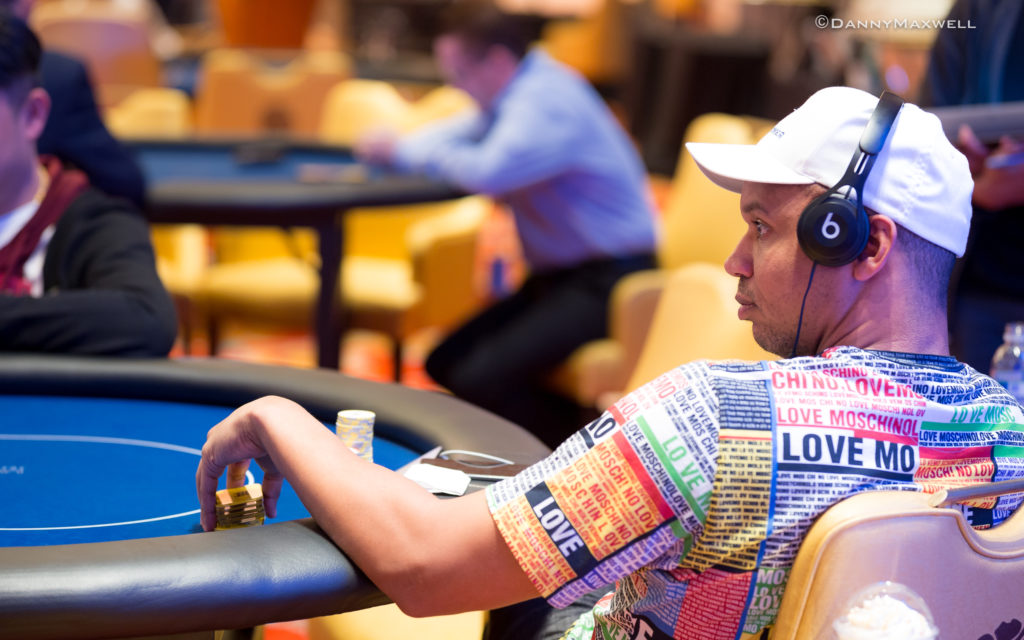
If you ask me this question – “how does a case go through court?” my answer would look something like this:
- You have your day in court.
- You win, or you lose.
- There is an appeal.
- You win or lose for good.
It’s not.
After watching ‘Making a Murderer’, I’ve learned that taking a case through the courts is like watching a colony of ants devouring a wounded elephant lying in a pool of treacle.
And that’s a good thing for Phil Ivey.
The man the poker Shaman believes is the best there is, and the best there ever was may have lost his $10.13m fight with Atlantic City’s The Borgata Hotel Casino & Spa, but the war rages on, and there is no dying of the light in sight.
Thanks to the due diligence of Haley Hintze over at Flushdraw, we know that last week, the U.S. Third Circuit Court of Appeals heard oral arguments from both sides of the fence, before the spitting contest moved to a New Jersey appellate court.
From what I can glean from Hintze’s research, the court was expecting The Division of Gaming Enforcement (D.G.E.), and Casino Control Commission (CCC) to provide information on the legal framework in which, the Ivey v Borgata case might sit.
Neither the D.G.E. nor the CCC provided a framework, and so the judge asked the two sides to present known cases where New Jersey gambling law N.J.S.A. 5:12-115(a), had been a critical factor in deciding the case.
The Arguments Begin: Ivey is on the Button
I don’t know if they flipped a coin or played a game of Ip, Dip, Dog Shit, but the counsel for the Borgata played their hand out of position, with Ivey’s legal team sitting on the button.
The Borgata’s representation, Jonathan Massey, quoted this section of the N.J. lawbook.
“Section 115(a)(2) makes it unlawful,” he wrote, ‘[k]nowingly to deal, conduct, carry on, operate or expose for play any game or games played with cards, dice or any mechanical device, or any combination of games or devices, which have in any manner been marked or tampered with, or placed in a condition, or operated in a manner, the result of which tends to deceive the public or tends to alter the normal random selection of characteristics or the normal chance of the game which could determine or alter the result of the game.”
Nothing new there then.
Ivey and his partner “Kelly” Cheung Yin Sun, knew they could manipulate the cards in a manner where the normal chance of the game would change, and Massey argues this is enough evidence to take back the $10.13m and change.
Massey also reached into the gambling archives, emerging with the Houck v Ferrari case. It has nothing to do with pirates or elite car manufacturers. Instead, it’s a case where a bunch of blackjack players were found guilty of breaking gambling laws, after deploying ‘hole-carding’ techniques – a method of seeing the dealer’s down card, and then adjusting bets accordingly.
Massey reminded the appellate court that in the Houck v Ferrari case, the court decided that ‘hole-carding’ altered the typical randomness of the game and that they should view ‘edge-sorting’ in the same light.
Ivey’s Turn
After heading back to their hotel room, doing some smudging, watching an episode of Making a Murderer, having 40-winks, waking up and eating runny eggs, Ivey’s brief, Louis M. Barbone played his hand.
As Barbone was on the button, he did have the ability to comment on Massey’s 2014 Blackjack case, stating that The Borgata willingly allowed Ivey and his accomplice to change the randomness of the game. Therefore, The Borgata has to share responsibility for acceding to their demands.
The case that Barbone used to prove that edge-sorting should be an acceptable practice in Baccarat, was another blackjack case involving a renowned card-counter Doug Grant.
“As recognized in ‘Doug Grant’, where the rules of the game are being followed, the normal chance and randomness of the game cannot be manipulated.”
The appellate panel will now digest and decide sometime in the next 20-years, and we promise to bring you the resolution, probably when Jason Mercier’s kids are being inducted into the Poker Hall of Fame.




